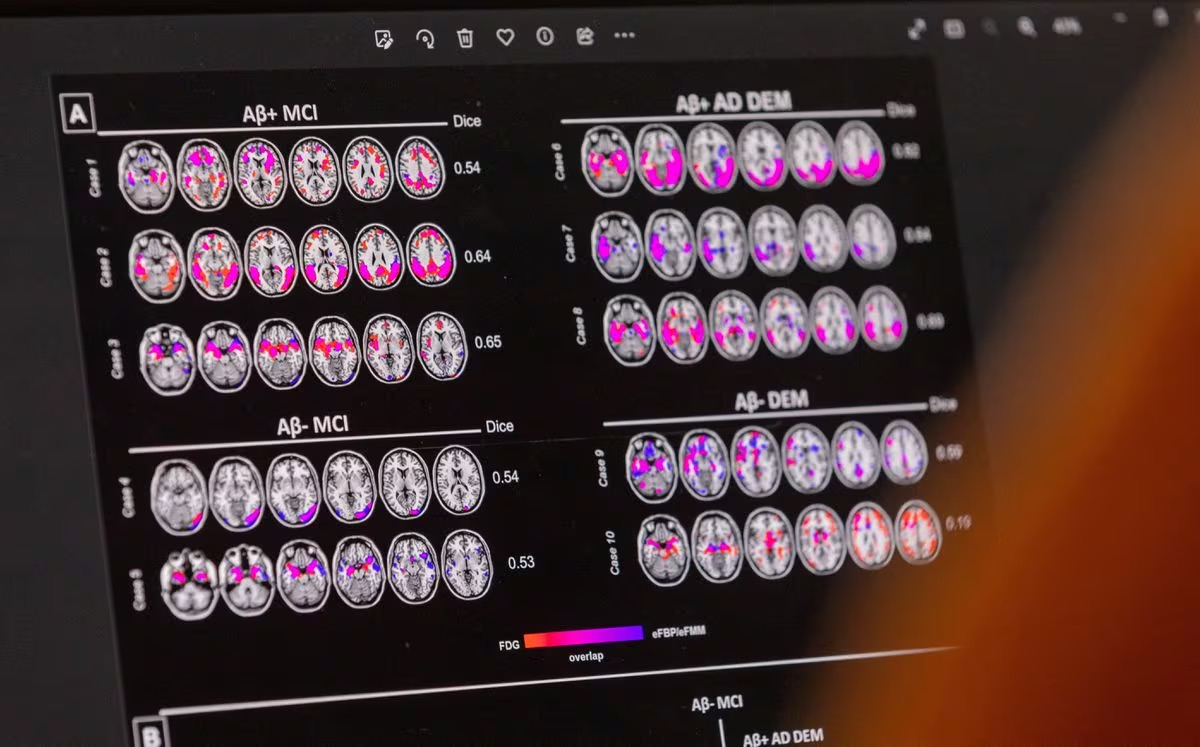The study, published in the journal Nature Aging, is part of an ongoing, multi-group research effort to identify patients at risk for dementia using a simple blood test—an advance many scientists believe will accelerate the development of new treatments.
Currently, brain scans can detect abnormal levels of a protein called beta amyloid many years before Alzheimer's disease develops, but the tests are expensive and often not covered by insurance.

A scientist examines patterns of reduced metabolism and reduced blood flow in an Alzheimer's patient at the Memory Center of the Department of Reading and Geriatrics at the University Hospital (HUG) in Geneva, Switzerland, on June 6, 2023. Photo: REUTERS
"Based on this research, it appears that blood tests will be developed to predict the risk of developing dementia in the next 10 years, although those at higher risk often struggle to know how to respond," said Dr. Suzanne Schindler, an Alzheimer's researcher at Washington University in St. Louis, who was not involved in the study.
Study author Jian-Feng Feng of Fudan University in Shanghai said such tests are crucial for aging populations like China and noted that he is in talks about the potential commercial development of blood tests based on his research.
In this study, researchers at the University of Warwick and Fudan University examined 52,645 blood samples from the UK's Biobank, collected between 2006 and 2010 from individuals who showed no signs of dementia at the time.
Of these, 1,417 eventually developed Alzheimer's disease, vascular dementia, or dementia of any cause. Researchers studied common protein markers in these individuals and found 1,463 proteins associated with dementia, ranking them according to their predictive power of dementia.
They found that people with higher levels of the proteins GFAP, NEFL, GDF15, and LTBP2 in their blood were more likely to develop Alzheimer's disease. Those with elevated GFAP levels had a 2.32 times higher risk of dementia, confirming findings from smaller studies that have shown this protein's contribution.
The authors note that their research has not been independently validated.
Schindler stated that a protein that works well in predicting dementia, neuronal fiber light, has been used in clinical practice to diagnose and monitor several conditions such as multiple sclerosis.
She said, "This study doesn't include clinically available blood tests for Alzheimer's disease, which could even better predict the development of Alzheimer's dementia."
Mai Anh (according to Reuters)
Source
















































































































Comment (0)